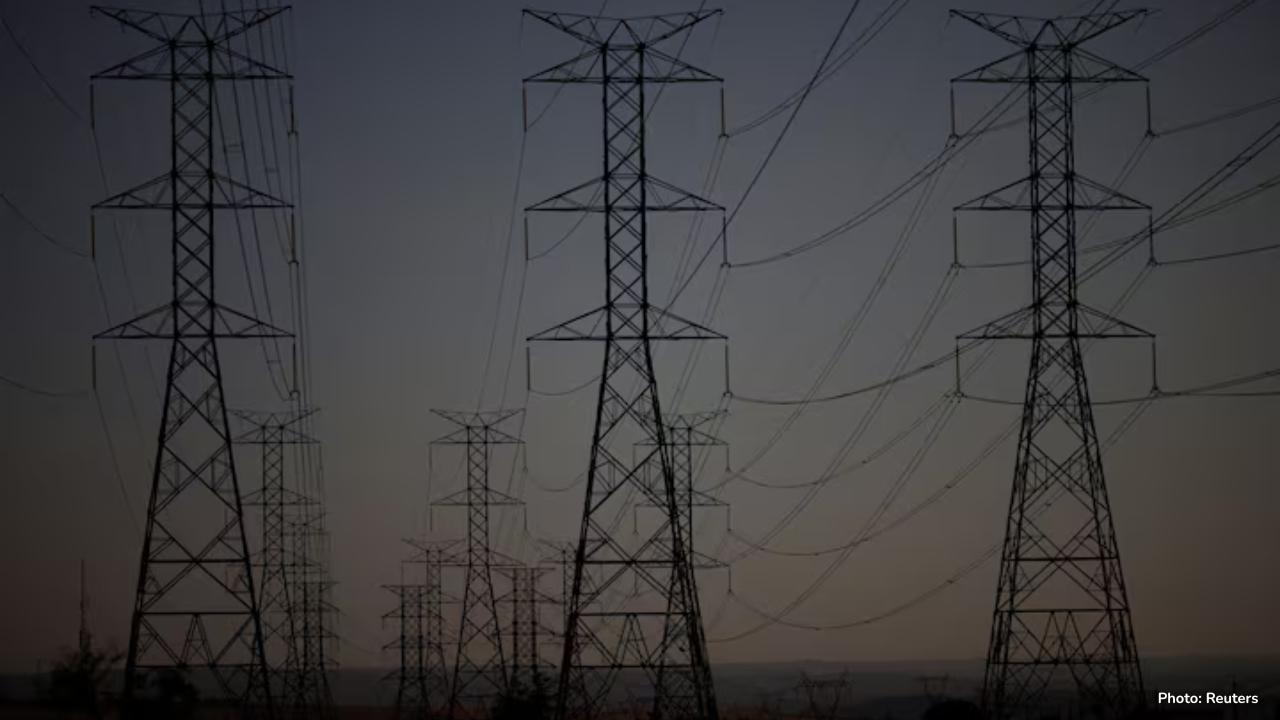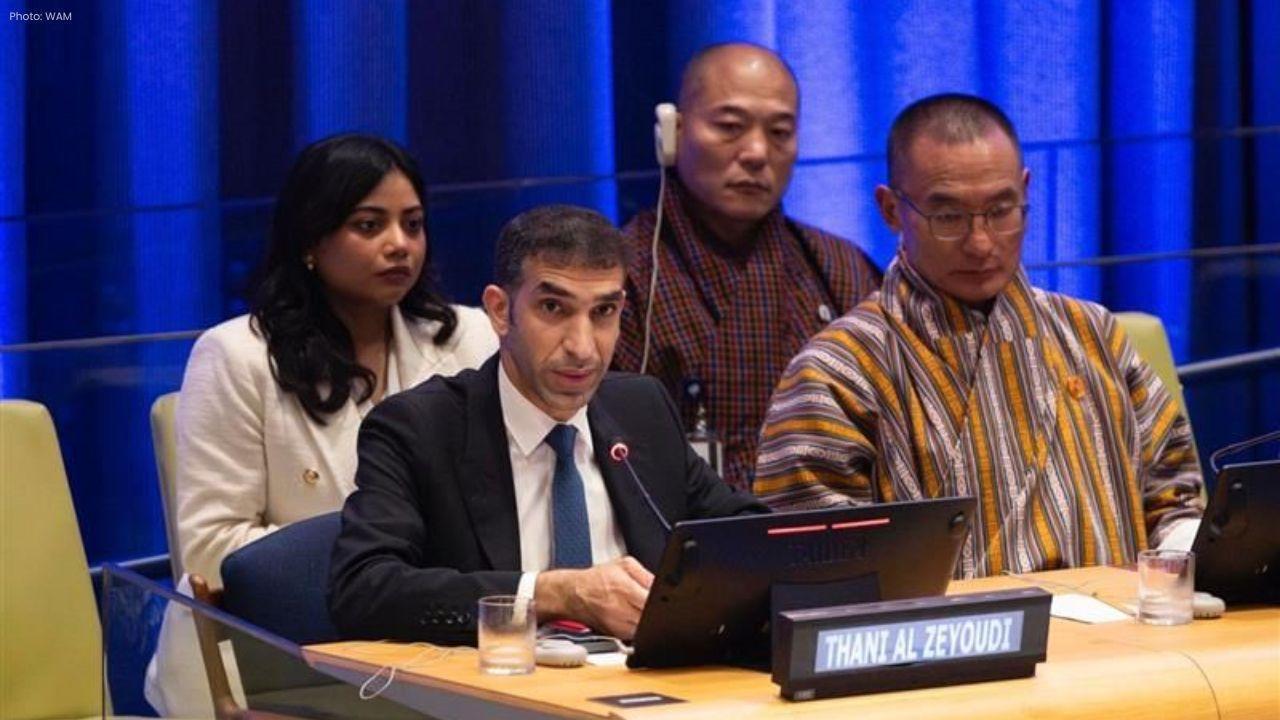
Post by : Naveen Mittal
The United States has issued a stark warning about the renewed threat posed by al-Qaeda and its Yemen-based affiliate, al-Qaeda in the Arabian Peninsula (AQAP). The alert comes from the National Counterterrorism Center (NCTC), which says the group remains determined to strike symbolic targets and exploit global instability to inspire attacks.
Although more than two decades have passed since the September 11, 2001 attacks, al-Qaeda continues to adapt and rebuild, attempting to reach new audiences and capitalize on conflict zones where U.S. influence is present. The latest warning has placed both American officials and the general public on high alert.
The U.S. counterterrorism advisory highlights how current global crises — including wars, political unrest, and heightened U.S. military involvement in several regions — are creating fertile ground for extremist propaganda. Al-Qaeda is reportedly seizing these opportunities to recruit, radicalize, and inspire attacks, both within the Middle East and abroad.
AQAP, the Yemen branch of al-Qaeda, has long been considered one of the network’s most dangerous affiliates. It is known for its attempts to launch attacks on U.S. soil, including the failed “underwear bomber” plot in 2009. Intelligence officials believe AQAP remains determined to target the United States, even if its direct operational capacity has been weakened by counterterrorism operations.
The memo urges U.S. officials and law enforcement agencies to exercise extreme caution in the weeks ahead. Some of the specific recommendations include:
Limit personal exposure: Government officials are advised not to publicly share travel schedules, work locations, or sensitive details that could make them targets.
Remove identifying markers: Personnel are urged to avoid wearing official badges or uniforms in public when off duty, reducing the chance of being singled out.
Tighten event security: Large gatherings such as sports matches, music concerts, and cultural festivals are considered possible targets. Organizers are encouraged to coordinate closely with security agencies to strengthen protective measures.
Stay vigilant in public spaces: Citizens are advised to report suspicious behavior, especially around transit hubs, crowded venues, and government buildings.
Al-Qaeda was responsible for the 9/11 attacks, which killed nearly 3,000 people and reshaped global security policies. While its core leadership has been weakened by U.S. military action and drone strikes, the group has proven remarkably resilient.
Experts say al-Qaeda has shifted strategy in recent years, focusing more on propaganda, regional influence, and inspiring lone-wolf attacks rather than complex, centrally directed plots. Its online messaging continues to glorify violence against Western targets, urging sympathizers worldwide to act independently if they cannot reach conflict zones.
The NCTC’s assessment emphasizes that al-Qaeda thrives on chaos. Conflicts in the Middle East, Africa, and parts of Asia provide safe havens for recruitment and planning. The civil war in Yemen, where AQAP operates, has created conditions that extremist groups exploit to strengthen their influence among vulnerable populations.
Beyond the Middle East, analysts also warn that instability in regions like Afghanistan, the Sahel in Africa, and parts of Syria could further embolden terrorist networks. Whenever global attention is diverted to major wars or crises, groups like al-Qaeda attempt to reassert themselves.
This is not the first time U.S. agencies have sounded the alarm over al-Qaeda’s activities. In the past, intelligence warnings have led to heightened airport screenings, increased police patrols, and new counterterrorism laws.
The U.S. has also conducted several high-profile operations against al-Qaeda leaders. The most significant was the 2011 raid that killed Osama bin Laden in Pakistan. More recently, American drone strikes have targeted AQAP leaders in Yemen, disrupting the group but not eliminating the threat entirely.
Despite these successes, officials caution against complacency. History has shown that al-Qaeda often regroups after setbacks, using propaganda and ideological influence to remain relevant.
The Biden administration has placed counterterrorism as a key part of its national security strategy. While the global focus has shifted toward great-power competition — especially with Russia and China — the enduring threat from terrorism remains a concern for Washington.
Internationally, the U.S. continues to work with allies in the Middle East and Africa to monitor extremist movements. Joint intelligence-sharing and counterterrorism operations have prevented several plots in recent years, though officials stress that cooperation must remain strong as al-Qaeda looks for openings to strike.
For ordinary people, terrorism warnings often create anxiety and disruption. Large events, airports, and even schools may adopt stricter security checks in response to alerts. While most threats do not materialize into actual attacks, the climate of fear can have real effects on daily life.
Analysts say this is exactly what groups like al-Qaeda want: to instill fear, disrupt normalcy, and project influence even when they lack the capacity for major strikes. By forcing governments and citizens to remain on edge, extremist groups extend their impact beyond direct violence.
Security experts believe al-Qaeda will continue trying to reassert itself on the global stage. With the Islamic State group weakened in recent years, al-Qaeda sees an opportunity to reclaim the mantle of leading jihadist movement.
For the United States, the challenge lies in balancing counterterrorism with other global priorities. While Washington must remain alert to extremist threats, it also faces mounting pressures from conflicts in Ukraine, rising tensions in the Indo-Pacific, and domestic political challenges.
Still, officials argue that staying vigilant and prepared is the best defense. By sharing intelligence, improving security at potential targets, and keeping the public informed, the U.S. hopes to blunt any possible plots before they materialize.
The renewed warning from the U.S. National Counterterrorism Center is a reminder that terrorism has not disappeared, even as global headlines focus on other crises. Al-Qaeda and its affiliates may no longer have the same capabilities they once did, but their ambition to strike the West remains.
As history shows, underestimating such threats can be costly. For now, American officials are urging vigilance, preparation, and cooperation to ensure that the shadow of al-Qaeda does not again translate into tragedy.
al-Qaeda, AQAP, U.S. National Counterterrorism Center, Global Terrorism, Public Safety, Security Threats, Middle East Security










Brazil's Surplus Clean Energy Attracts Crypto Miners
Brazil's excess renewable energy is luring cryptocurrency miners. Companies like Tether and Renova E

Visa Tests Stablecoins to Make Global Payments Faster
Visa is testing stablecoins for international payments, aiming to speed up transactions and reduce t

Opera Unveils Neon AI Browser for Smarter Web Browsing
Opera introduces Neon, an AI-powered browser that automates tasks and enhances privacy, aiming to re

Albanese Visits Sheikh Zayed Grand Mosque in Abu Dhabi
Australian PM Albanese tours Sheikh Zayed Grand Mosque, highlighting peace, tolerance, and cultural

Eutelsat Seeks More EU Investment to Compete with Starlink
Eutelsat aims to close funding gap to challenge Starlink's dominance in satellite internet, with Fra

India Receives Above-Average Monsoon Rains for Second Year
India experiences above-average monsoon rainfall for the second consecutive year, boosting agricultu